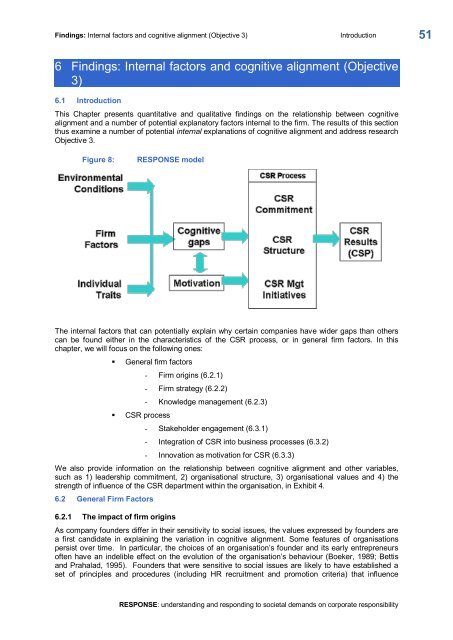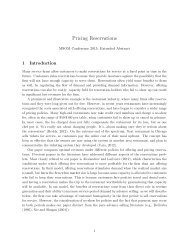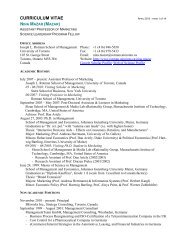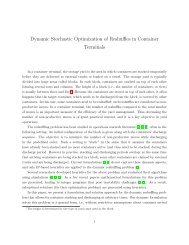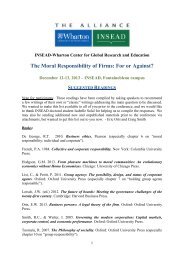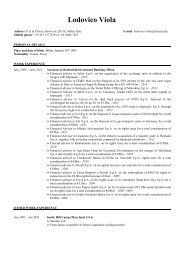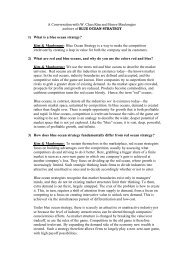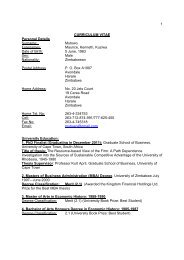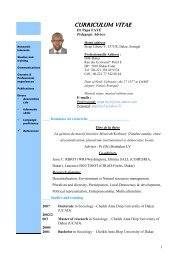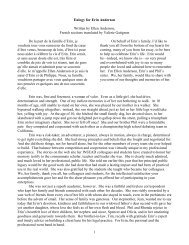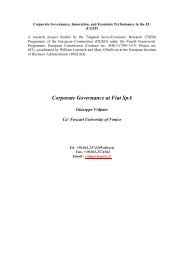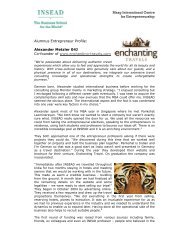RESPONSE - Insead
RESPONSE - Insead
RESPONSE - Insead
You also want an ePaper? Increase the reach of your titles
YUMPU automatically turns print PDFs into web optimized ePapers that Google loves.
Findings: Internal factors and cognitive alignment (Objective 3) Introduction<br />
6 Findings: Internal factors and cognitive alignment (Objective<br />
3)<br />
6.1 Introduction<br />
This Chapter presents quantitative and qualitative findings on the relationship between cognitive<br />
alignment and a number of potential explanatory factors internal to the firm. The results of this section<br />
thus examine a number of potential internal explanations of cognitive alignment and address research<br />
Objective 3.<br />
Figure 8: <strong>RESPONSE</strong> model<br />
The internal factors that can potentially explain why certain companies have wider gaps than others<br />
can be found either in the characteristics of the CSR process, or in general firm factors. In this<br />
chapter, we will focus on the following ones:<br />
General firm factors<br />
CSR process<br />
Firm origins (6.2.1)<br />
Firm strategy (6.2.2)<br />
Knowledge management (6.2.3)<br />
Stakeholder engagement (6.3.1)<br />
Integration of CSR into business processes (6.3.2)<br />
Innovation as motivation for CSR (6.3.3)<br />
We also provide information on the relationship between cognitive alignment and other variables,<br />
such as 1) leadership commitment, 2) organisational structure, 3) organisational values and 4) the<br />
strength of influence of the CSR department within the organisation, in Exhibit 4.<br />
6.2 General Firm Factors<br />
6.2.1 The impact of firm origins<br />
As company founders differ in their sensitivity to social issues, the values expressed by founders are<br />
a first candidate in explaining the variation in cognitive alignment. Some features of organisations<br />
persist over time. In particular, the choices of an organisation’s founder and its early entrepreneurs<br />
often have an indelible effect on the evolution of the organisation’s behaviour (Boeker, 1989; Bettis<br />
and Prahalad, 1995). Founders that were sensitive to social issues are likely to have established a<br />
set of principles and procedures (including HR recruitment and promotion criteria) that influence<br />
<strong>RESPONSE</strong>: understanding and responding to societal demands on corporate responsibility<br />
51


